The Russian Library in Lausanne (1900-1955)
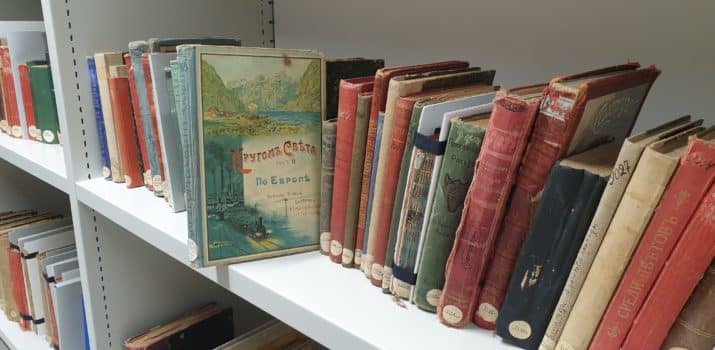

In December 2024, the University of Grenoble’s ILCEA journal published an issue entitled Libraries outside the Empire: institutions and cultural practices in Russian-speaking exile (1870-1956). This publication is significant for the BCU Lausanne, as it devotes several articles to the Russian Library of Lausanne.
The Russian Library of Lausanne operated as an independent library in Lausanne from the very beginning of the 20th century until 1955. The library changed address several times before settling in the Galeries du Commerce around 1913. In 1955, due to a lack of economic viability, its collections were donated to the BCU Lausanne.
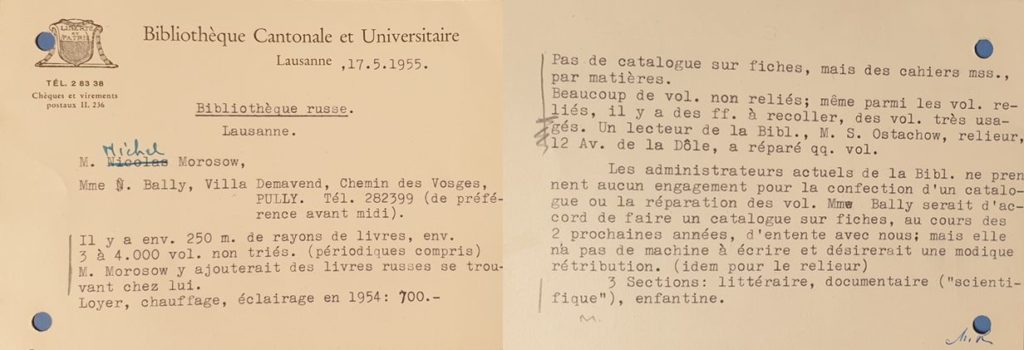
Little studied until now, the Russian Library of Lausanne represents a heritage as local as it is exotic. First and foremost, it is a collection of books and magazines assembled in Lausanne, for the most part in the first quarter of the 20th century. These collections reflect the special relationships that existed between books and Russian-speaking people who passed through Lausanne: authors, donors, publishers, booksellers, librarians, political groups… whose stamps and marks of membership are scattered across the volumes.
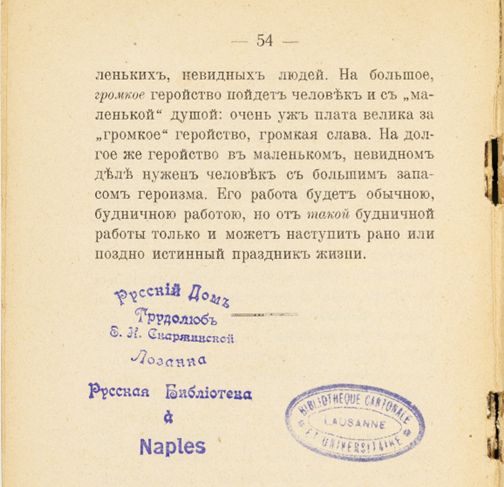
It is also the indirect testimony of a social history, that of the library’s public. Coming from the empire of the Tsars by many different routes, they came together to read, study and exchange.
“They” or rather “them”? Because among the many Russian speakers who came to study in Lausanne between 1900 and 1917, the majority were young women, seeking medical training that was often inaccessible to them in the Russian Empire.
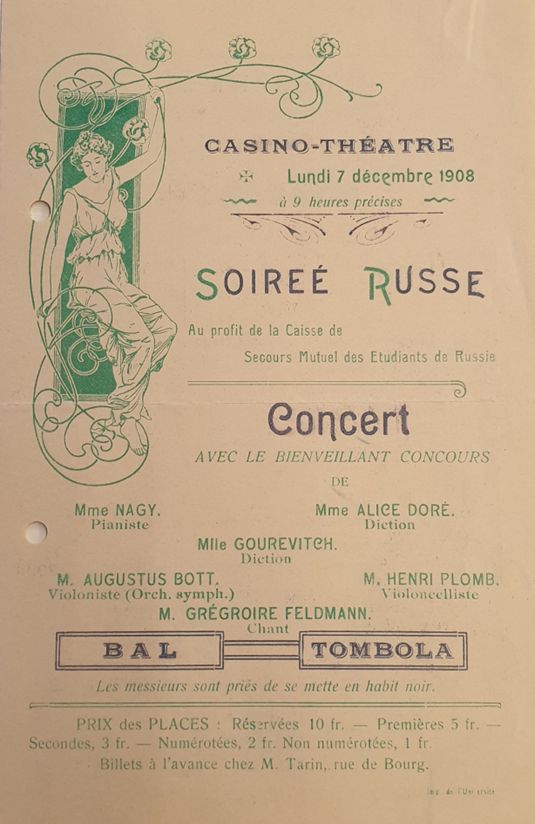
This library also reflects a political history. Indeed, its foundation appears to be linked to Lausanne’s first Maison du peuple, a popular education project of the kind that was flourishing in Europe at the dawn of the First World War. We recommend reading Olivier Pavillon’s book, Les Maisons du Peuple de Lausanne.
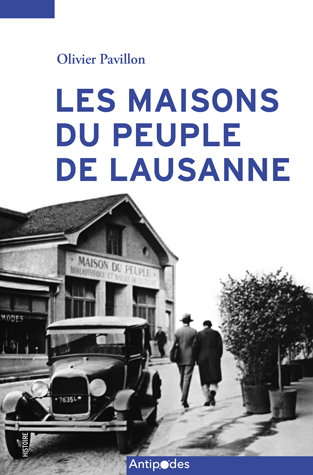
This issue of the Université de Grenoble magazine highlights a few aspects of this forgotten library. Many thanks to all those who made this project possible. In particular to Alexey Evstratov and François Allisson for their scientific coordination, to Danièle Tosato-Rigo for her help and research in the archives, and to Natalia Boyarsky for her meticulous inventory of the collection, which will lead to its gradual integration into the Renouvaud catalog. Not forgetting the BCU Lausanne bindery team, who restored and reconditioned the most fragile documents.